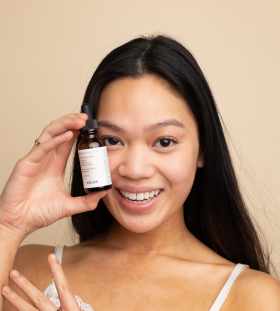Does Dairy Cause Acne? Read the Verdict!
If you’re a dairy consumer prone to acne, then you are most likely interested in knowing the accurate answer to the question “Does dairy cause acne?”. We hear you and we’ve properly researched the subject matter to help educate you by presenting the scientific facts regarding dairy and acne.
Do you know that common belief ( some say it’s a myth) that chocolate causes acne? Well, since most chocolate also contains milk, it’s that much more important to know if milk and other dairy products are acne causing foods or not, in order to see if chocolate causes acne. Read on to find out.
Several studies have found that diets high in dairy products may be one of the root causes of acne. Consumption of dairy products such as liquid and powdered milk, butter, cheese, as well as both milk and whey protein concentrates/ isolates has been associated with an increased risk of acne vulgaris and other dermatological conditions. Research shows that the process of digestion and breakdown of casein ( phosphoproteins making for 80% of the protein found in cow milk), as well as other milk proteins into amino-acids in the human liver, can be responsible for the occurrence of acne.
So Does Dairy Cause Acne? What Do Scientists Say About Dairy and Acne
Dr. William F. Danby, an expert in dermatology at Geisel School of Medicine at Dartmouth College in Hanover, NH has extensively researched the potential link between dairy and acne. As a result, Dr. Danby warns that upon ingestion, dairy products trigger an increase in the levels of both insulin (a hormone secreted by the pancreas) and insulin-like growth hormone-1 (IGF-1).
More specifically, these polypeptide hormones cause the activation of the androgen receptors (ARs), also known as male hormone receptors, by binding the androgenic hormones (testosterone or dihydrotestosterone). Once activated, these androgen receptors can trigger symptoms associated with acne vulgaris, regardless of the gender of the individual.
On his website, Dr. Danby also published Dr. Jerome Fisher’s original 1965 paper involving more than one thousand cases of acne vulgaris. This paper also contains several sections that address the link between nutrition and acne, including a section about dairy and acne called “Milk Drinking as a Secondary Factor in Acne”.
So does dairy cause acne? Let’s dig deeper to find out the answer. Milk also contains male steroidal hormones (dihydrotestosterone in particular) which are known to stimulate and intensify the activity of the sebaceous glands (that secrete sebum). In 2009, the British Journal of Dermatology published a study that showed a strong correlation between serum IGF-1 levels and sebum production. Elevated levels of both serum insulin and serum IGF-1 (which are naturally higher during puberty) trigger the production and release of excess sebum, one of the underlying causes of acne vulgaris.
Commercial Vs Organic Milk
Dr. Danby highlights the fact that androgenic hormones are found in both commercial and organic milk; in other words, the quality of milk consumed by people cannot prevent the risk of developing androgen- / insulin-mediated acne. These hormones act as anabolic steroids ( such as the ones used by bodybuilders for muscle gains), increasing ten times the sebaceous gland activity.
When you consume milk produced by cows that have been previously injected with recombinant bovine somatotropin or growth hormone (rBGH) – i.e. most commercial milk, the synthesis and release of IGF-1 are stimulated considerably more than when organic milk is consumed. This means that commercial milk and other dairy products are acne causing foods because artificial growth hormones in milk significantly increase the risk of acne.
Organic milk contains small amounts of the naturally occurring hormone bovine somatotropin (BST), also known as bovine growth hormone (BHG), which helps cows produce milk. Consequently, when consuming organic milk the risk of acne still exists, but it’s not as significant as it is when consuming commercial milk.
The Verdict
So does dairy cause acne? According to scientific evidence, the answer is yes – commercial dairy products and. to a lesser extent, organic dairy products are acne-causing foods. So if you’re prone to acne, especially hormonal acne, then it is in your best interest to eliminate dairy products from your diet, as well as other acne causing foods.
But the good news is that the alternatives to cow milk are countless, very delicious, and considerably healthier – almond and hazelnut milk, coconut milk, oat milk, rice milk, soy milk, and more. Other delicious dairy substitutes include cashew cheese, olive oil, coconut oil/cream, and many more.
I am an Author and what makes me the one is my ability of playing with the words. I also enjoy writing poetry and engaging my audience in my words. I have written for many websites and eBook and gained a good response.

